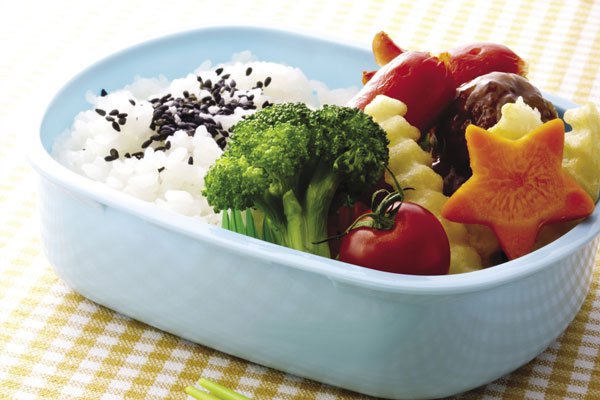Welcome to autumn, when the days get cooler, kids head back to school and parents everywhere commit themselves to packing nutritious, delicious lunches their kids will love. Until reality sets in. Then life and schedules and parenting fatigue begin to undermine our good intentions.

lunch packing
Lovingly-packed lunches that go uneaten, the specter of time spent at the kitchen counter or the need to stick to a budget can wear away the strongest resolve. This year, let us bolster your determination with answers to some of your most troubling lunch-packing questions.
How can I get my kids to eat more of what I pack?
- Invite your children to create a list of favorite foods, and don’t forget to ask how they like them prepared. You may think your kids hate carrots, when in fact they only dislike them raw and are willing to gobble them up when served steamed.
- Cut fruit such as apples into wedges. A child confronted with a whole apple will take a few bites and toss the rest. Smaller bites are less daunting which will result in your child eating more over the course of the day and won’t hurt wiggly teeth.
- Go for variety. Small quantities of different foods will have more appeal than a large amount of one thing.
- Be strict. After school, require your kids to finish their lunches before preparing a snack.
How can I save time when packing lunches?
- Store all of your lunch-packing equipment in one location. Designate one drawer for all sandwich and snack containers, wraps or bags, thermoses and stray water bottles.
- Assign one color or style of storage container to each child. This helps if you provide kids with different foods, or prepare them differently. You can pack in advance and not have to re-open containers to determine the recipient. You’ll also know at a glance who is, or is not, eating his lunch each day.
- Keep frequently used, non-perishable lunch items in the same cupboard, ideally on the same shelf. Even better, store them in a tub that you can pull off the shelf in one move and bring to the counter.
- When storing leftovers after dinner, determine what can be packed in tomorrow’s lunch. As you put food away, divide portions directly into single serving containers, one for each child.
- Reserve a shelf in the refrigerator for lunches. In the morning, grab items from the shelf and pop them into lunch boxes.
- Recruit your children to pack their own lunches. You will save time while they learn responsibility and a necessary life-skill.
How can I make lunch-packing more affordable?
- Always include leftovers. Beans, steamed vegetables and grain or pasta salads hold up well and taste good cold. Soups, stews and other main-dish meals can be heated in the morning and placed in a thermos.
- Buy in bulk and repackage food into individual servings. Don’t limit this concept to snack foods. Buy the family-sized tub of yogurt and serve it in half-cup sized containers.
- Avoid processed, pre-packaged lunch foods. Not only are they expensive, they contain excess sodium and chemicals that your kids don’t need.
- Invest in reusable containers, bags and wraps.
Finally, resist the pressure to have every meal be a work of art. Instead, keep your goals modest and manageable. And when you feel your lunch-packing momentum begin to flag, pull out this list as a reminder to streamline your system. Chances are your organizational structure and planning have begun to deteriorate. Take a breath. You can do it.
Heather Lee Leap is a freelance writer and mother of three small girls with disproportionately large appetites.
Views: 2



